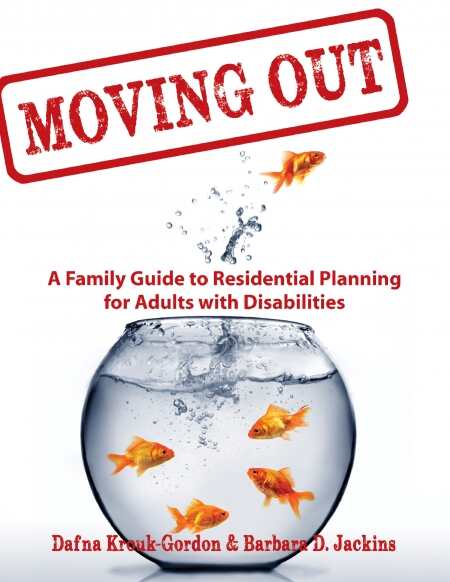Moving Out
A Family Guide to Residential Planning for Adults with Disabilities
The authors help readers take control of the future while ensuring that their child becomes as happily independent as possible.
As deinstitutionalization presents more options and concerns, parents are seeking resources to ensure their adult child will experience appropriate levels of independence. For better or worse, private agencies have a primary role in ensuring the rights of disabled persons are respected. How should parents choose an agency? Should parents choose an agency? Moving Out is an essential book for anyone with a disabled child, covering the bases without overwhelming parents.
The authors help parents navigate into the future with thorough discussion and a compassionate, businesslike tone. By virtue of Barbara Jackins’s decades of experience in disability law and with her practical experience as the parent of a disabled young adult, readers will feel imbued with confidence at the depth and breadth of information covered. First-time author Dafna Krouk-Gordon brings extensive knowledge garnered in thirty-three years as founder/president of a respected Massachusetts residential agency serving intellectually disabled persons (including Jackins’ daughter). Any audience should feel the authors are trustworthy sources on both counts.
Financial arrangements organize the book into chapters. Complex,“individualized” cases are critiqued: when parental contribution cannot cover group home costs and the state will not offer important benefits (or the individual is indefinitely wait-listed for services), the authors suggest that parents pay for a staff person rather than health insurance and not rely on unpaid students as companions. Unfortunately, in pursuit of viable self-pay scenarios the authors recommend paying minimum wages or room and board only to caregivers with only one weekend per month respite; quality caregivers may balk.
Funding loopholes are revealed so parents may seriously consider founding a nonprofit. Well-crafted paperwork found in the appendix is needed if parents plan to own a residence for their child, but will reveal whether potential provider agencies are asking the right questions and exhibiting sufficient oversight. Parents and their children actively create a more independent living arrangement with checklists, questionnaires, and other tools (i.e., a live-in staff legal agreement and suggested house rules).
Numerous examples and honest discussion of legal realities illustrate why parents may find greater relief in handing over the reins to an appropriate agency. Vulnerable populations may benefit from parent groups purchasing a group home before selecting an agency, however. Dynamics are explained deftly: “Owning the property puts you in charge. If the agency is not living up to your expectations, you can fire it and hire a different one. Often the threat of removal can be sufficient to persuade the agency to respond to your requests.”
The authors address parents with varying levels of knowledge by explaining services like SNAP (food stamps) and Section 8 (low-income housing); most disabled people will receive public benefits upon leaving the family home. A chapter covering issues parents should brace for as some intellectually disabled people begin to make independent choices (i.e., rapidly burgeoning sexuality, declining health) helps determine priorities. Another stellar chapter covers long-term planning through insurance and trusts.
The authors also offer an encouraging, unbiased discussion of basic nonprofit startup and the many legal and financial issues that entails. This is a strength of the book that parents are unlikely to see discussed in such depth elsewhere. The authors want families to take control of the future while ensuring that their child becomes as happily independent as possible.
Reviewed by
Carrie Wallace
Disclosure: This article is not an endorsement, but a review. The publisher of this book provided free copies of the book and paid a small fee to have their book reviewed by a professional reviewer. Foreword Reviews and Clarion Reviews make no guarantee that the publisher will receive a positive review. Foreword Magazine, Inc. is disclosing this in accordance with the Federal Trade Commission’s 16 CFR, Part 255.

